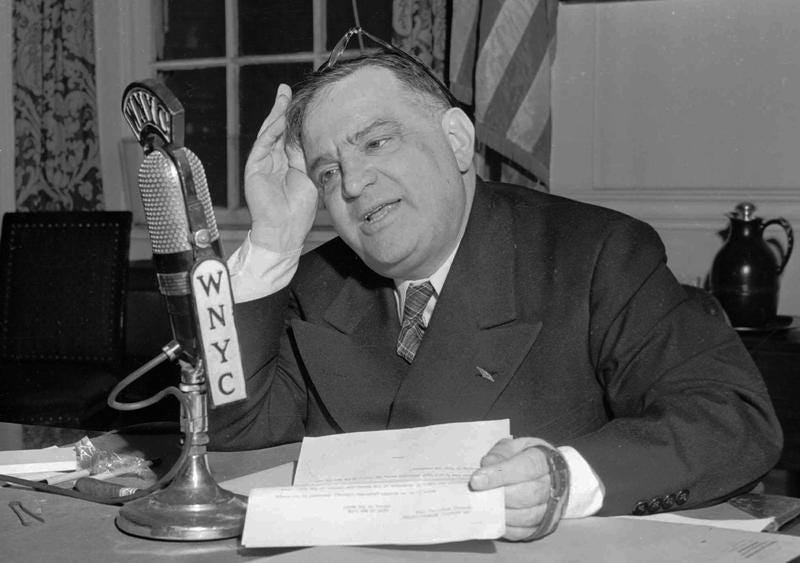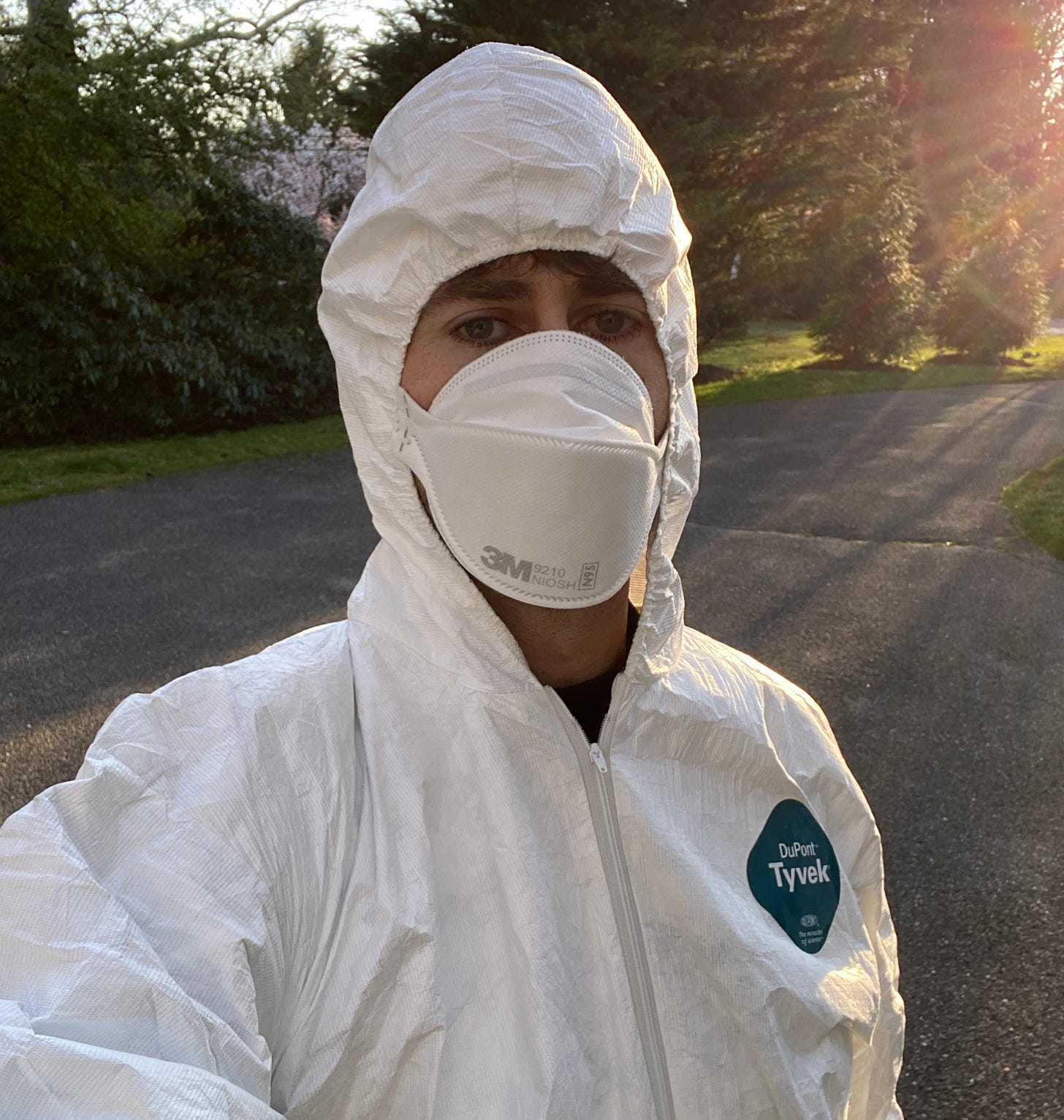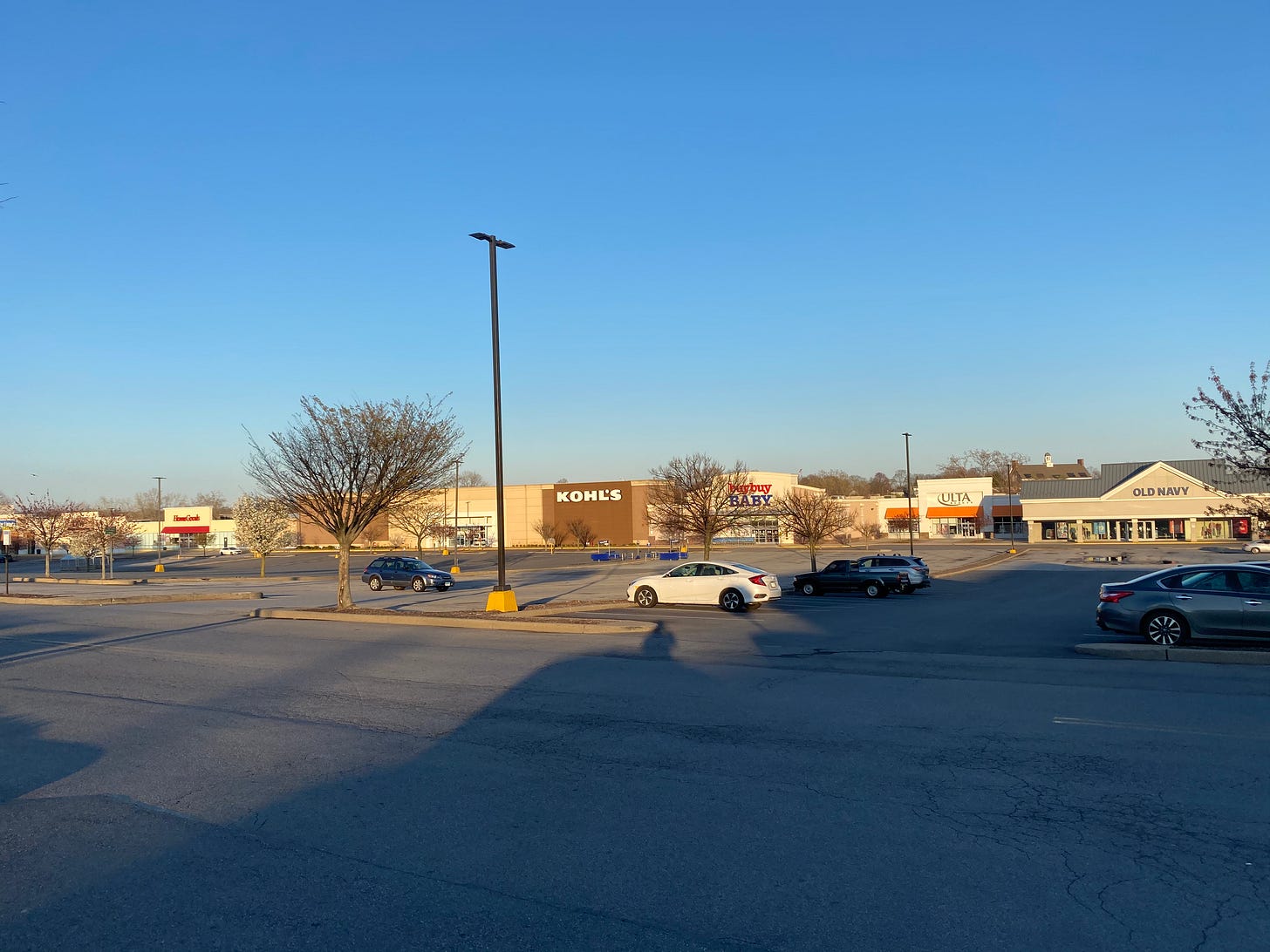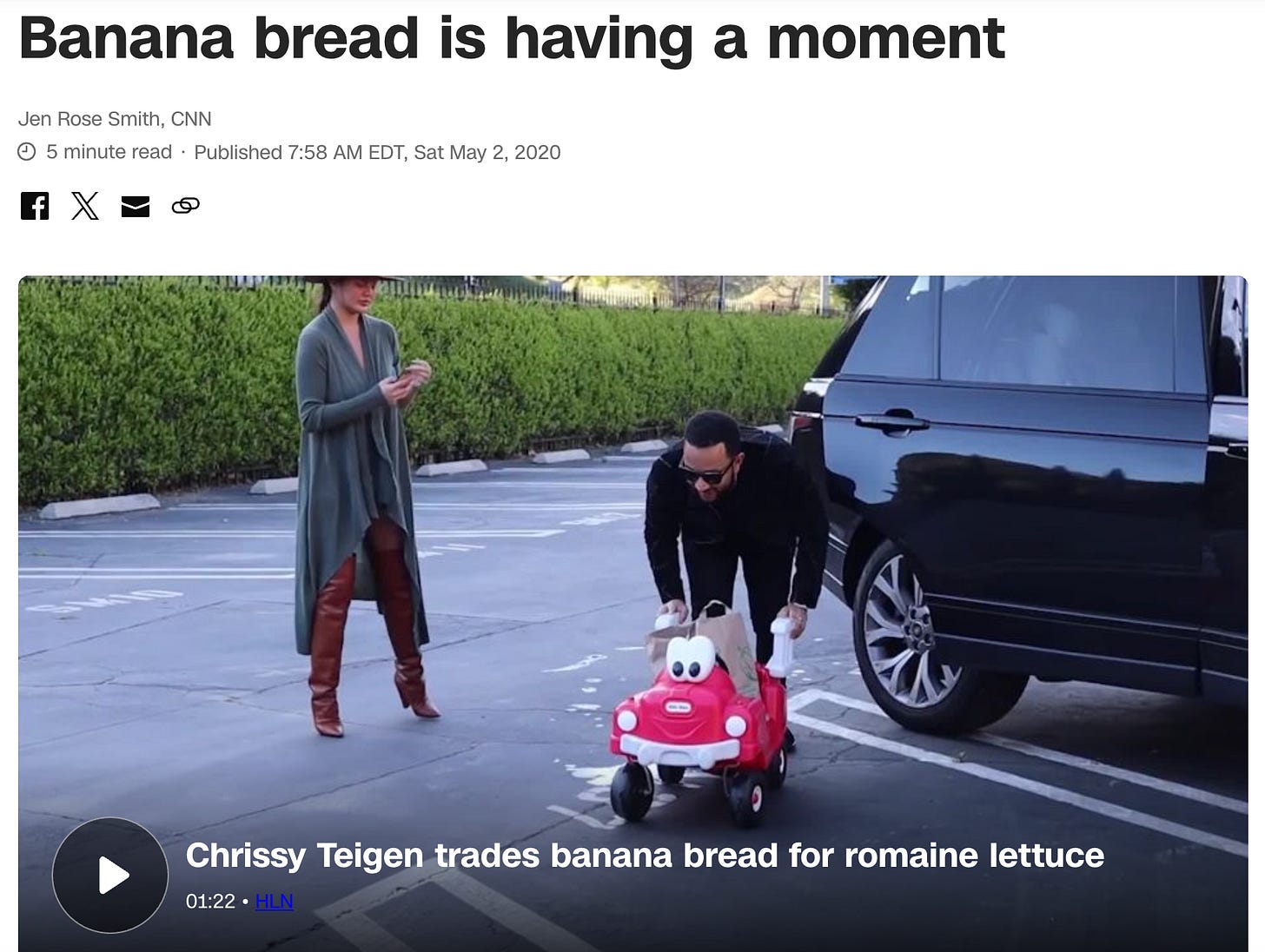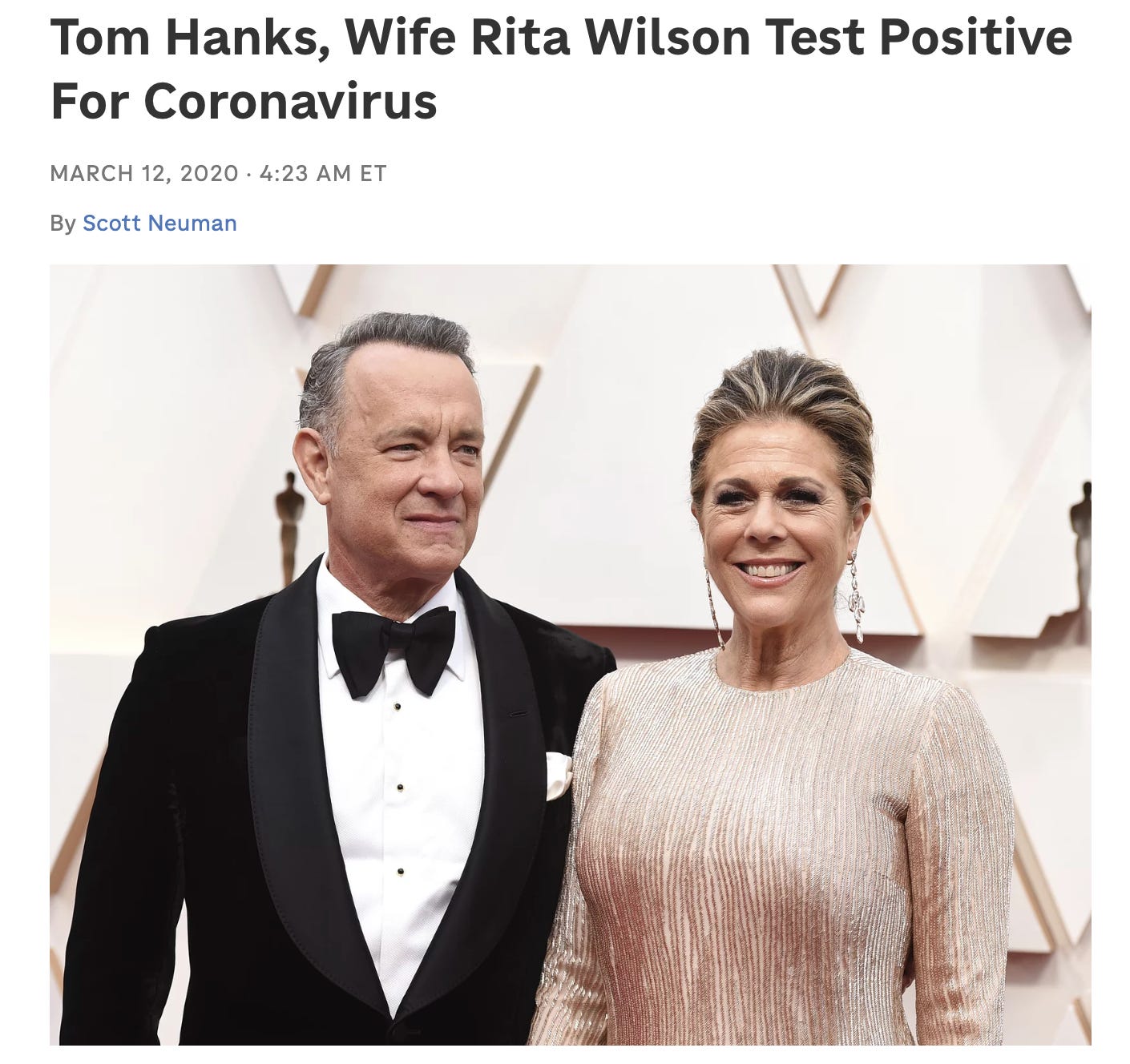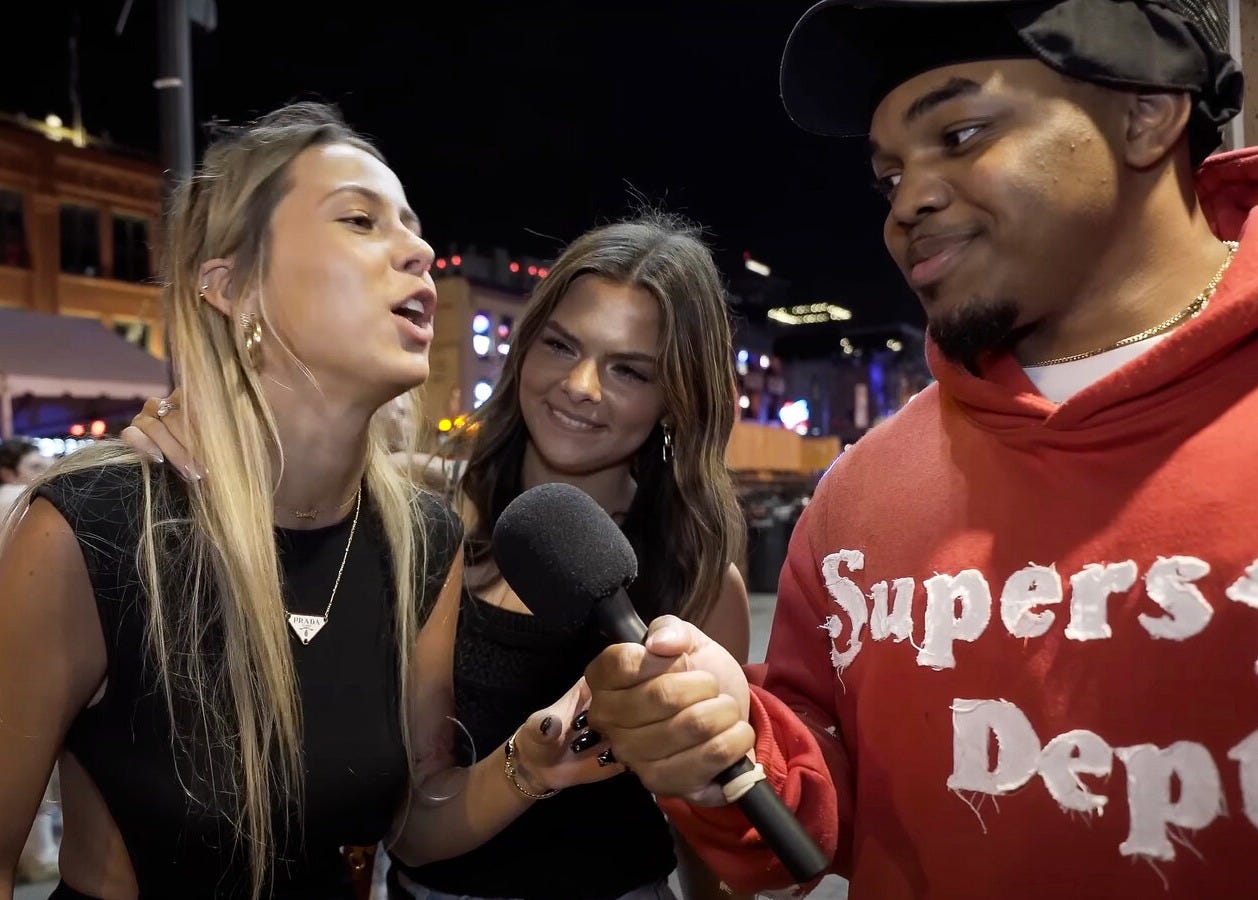029 - Things We Lost in the Lockdown
Examining my ‘Pandemic Nostalgia’ and wondering just how badly we blew it
Is there an airport name anywhere in the world that better symbolizes the city it serves than LaGuardia? Born from the mind of Gotham’s pugnacious and prideful New Deal mayor who pushed through its rapid construction by dint of sheer will and his determination to reclaim “New York” from Newark, New Jersey — home to the tri-state area’s only commercial air field at the time — the 'New York Municipal Airport’ was renamed in honor of its indefatigable advocate in 1947, a testament not only to the accomplishments of a singular Italian-American but to the perseverance and industriousness of the broader immigrant experience so elemental in the DNA of New Amsterdam’s founding and subsequent thriving.
Whether a newcomer to New York or a native returning home, arrivals at LaGuardia: The Airport can’t help but unconsciously invoke LaGuardia: The Man and the romanticized Art Deco era over which he reigned — arguably the apex of the Big Apple’s bigness, when the huddled masses could hustle their way from the push carts and cramped tenements of their Lower East Side slums to the highest executive offices and penthouses of uptown’s ziggurat-topped, polished granite monoliths.
Beyond historical metaphor, consider this evocative name from a purely phonetic perspective: with its four syllables packed into nine letters, LaGuardia cacophonously mirrors the commotion of its locality’s world-renowned population density, a modern marvel of vertical engineering that allows for 30,000 New Yorkers per square mile to more or less peacefully, if noisily, coexist.
Consider, too, its orthography: with capital ‘L’ and ‘G’ sandwiching that first ‘a’ and the little ‘d’s’ backbone jutting up against the tittle of the little ‘i,’’ LaGuardia can’t help itself from even structurally suggesting the famous skyline of its neighboring borough rising to the west over the East River.
LaGuardia — like its namesake, like its spelling, like the city it represents — has no truck with the faint of heart: If you can make it through security here, you can make it through security anywhere.

I was out the door and on the way to calling an Uber to LaGuardia when I decided to give my manager Dan (my ‘danager’) a ring first. It was the morning of March 13, 2020, and I was hours away from boarding a flight to Louisville, where I’d then be shuttled fifty miles north to Hanover College in Indiana to perform my touring comedy-trivia show “Savage Questions” for what I could comfortably assume would be a collection of abjectly bored and cripplingly bashful students who couldn’t come up with anything better to do with their Friday night.
My itinerary was originally set to continue the following day with a flight down to Austin for an event with American Express at SXSW, but curiously, SXSW had been cancelled the week prior for the first time in its 34-year history due to something being called the ‘novel coronavirus.’
My college show was still a go when I went to bed on March 12, but this virus was spreading like the plague some feared it might be. Hopeful postponements or outright cancelations were piling up on my social calendar, so I asked Dan to confirm my scheduled appearance before I committed to schlepping to Flushing.
Sure enough, the show had juuuuust been called off. Returning to my apartment, I dropped my bags, sank back into the couch, drew what would be one of my few remaining deep breaths of reliably fresh air for several months, and settled in for my first pandemic.
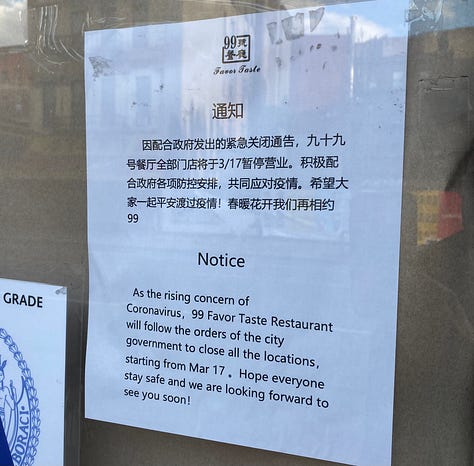
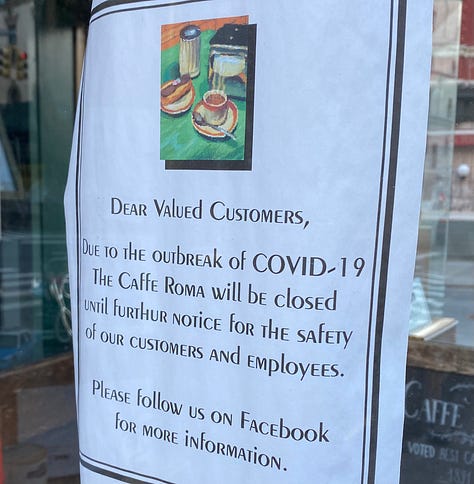

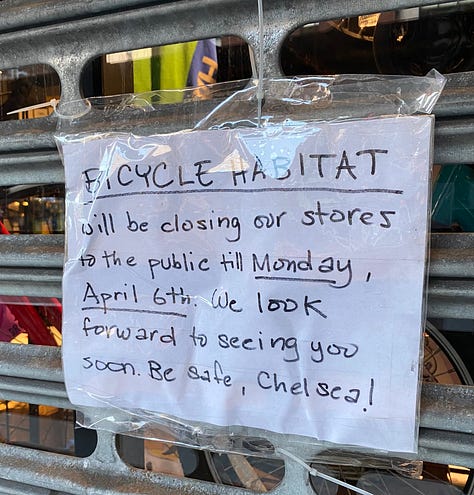
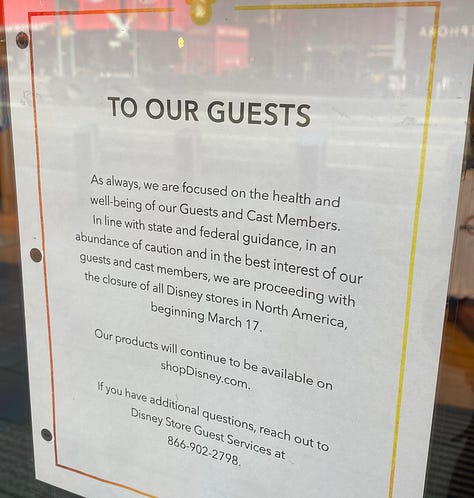
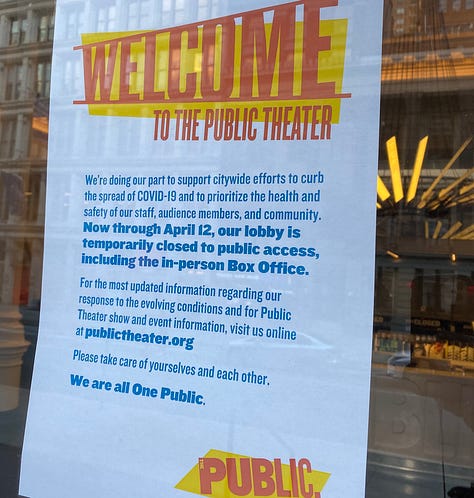
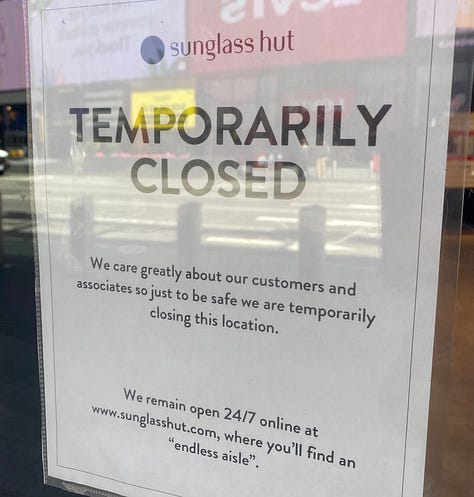
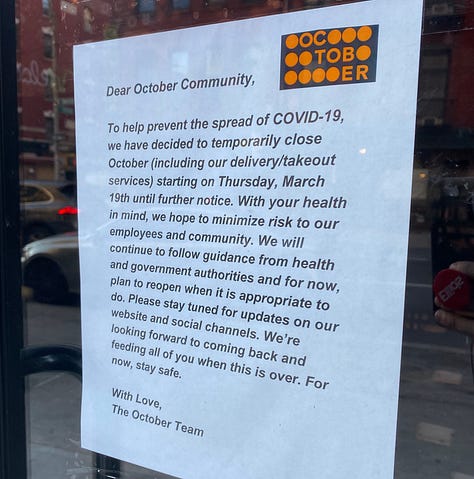
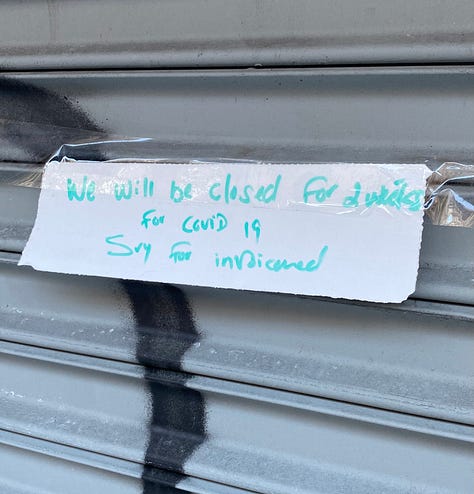
Five years later… I miss it so much!!!!
Before you scroll to leave a scornful, self-righteous comment, let me be clear about what exactly it is that I miss.
Do I miss the empty toilet paper shelves at CVS? No. Tone deaf social media posts from celebrities melting down in isolation? Hmm, well… no. Getting reamed out by a 5’1” mother of two in a full hazmat suit for accidentally bumping my cart into hers in the dried fruit and nut aisle of Trader Joe’s, while her confused and embarrassed kids stared at the floor? LOL, hell no, but talk about throwing fits!
I definitely do not miss being unable to hug my immunocompromised mother on her 70th birthday, nor the living in constant fear of contracting a mysterious and malignant virus that ultimately claimed over 7 million recorded fatalities.
But may I shamelessly confess how much I lovingly recall those halcyon days of lockdown when, FINALLY, everyone was on my schedule? Even you, dear reader, be you doctor or lawyer or banker or baker, even you must admit you enjoyed your brief taste of the underemployed comedian’s lifestyle: lounging around the house, unshowered and unbothered, making pancakes for breakfast, lunch, and dinner, absolutely crushing the Criterion Channel… It felt like an extended spring break, and for a guy well into his 30s, a staycation was far preferable to Cancun.
Superficialities aside, my reminiscences run deeper. What I truly miss most — and please don’t make fun of me for this one — is the hope for a better world. I miss the optimism I felt for the possibility of a new societal operating system. I miss those brief moments when I truly believed each of us would emerge from the pandemic with at least ten fresh ideas for how to improve the way of life for our endangered species, and that at least one of those eighty billion ideas — be it a cure-all for climate change, a bold new paradigm for self-governance, or a non-fat, sugar-free ice cream that doesn’t taste like diapers — would actually be implemented to the betterment of all humankind.
Instead, we got NFTs.
I don’t remember much from the dozen courses I took to earn my political science degree in college, but one professor’s lesson stuck with me: the status quo rules political systems. Inertia is often an immovable force in the face of progressive efforts to make substantial change. But every so often throughout history, an external shock to the system has proved great enough to break the shackles of paralysis in the state of affairs: a stock market crash, a war, an out-of-control viral outbreak.
Despite our mandatory six feet of separation, I never felt more connected to both the fragility of my individualized, biological humanness as well as the indomitable, collective strength of our unified humanity. They say death is the great equalizer, and here were all 8.3 billion of us roommates on Planet Earth, playing on the same level field, cowering in the shared primal fear of a reaper whose indiscriminate harvest claimed nearly 0.1% of the worldwide population. But what if we overcame the fear? What if we could channel all the energy expended by billions of people refreshing the CDC’s website and wiping down groceries and arguing about masks into a positive force for universal good?
This was our chance, a once-in-a-lifetime opportunity to blow up the hyper-capitalist house of cards on which the majority of our global civilization was resting, already rather shakily. Remember all the love and support we showed for essential workers? All the clamoring with pots and pans for exhausted hospital staffers returning home after another harrowing day staring down a deadly virus? Remember all that banana bread? All that sourdough???
We were so close to returning to our communal agrarian roots, to rebuilding society on a foundation of kindness, compassion, generosity and faith in our fellow humans to come together despite our many differences, to “not sweat the small stuff” now that we had sweated out the biggest stuff imaginable — and survived.
Annnnnnd, we blew it.
Was our Great Squandering inevitable? Did the unfettered politicization and polarization fueled by our endless scrolls of atomized and sensationalized news feeds preclude our ability to “get on the same page” and forge common understanding? Was the death grip of capitalism and our institutionalized instinct to MONETIZE EVERYTHING too formidable to be toppled by a puny pandemic? Was I foolish to think otherwise?
You know what I really think? COVID didn’t kill enough celebrities. With all due respect to John Prine and the guy from Fountains of Wayne, Tom Hanks needed to die. Andy Cohen needed to die. Billie Eilish and Ed Sheeran and DJ Khaled and Keira Knightley and Jason Momoa and Tom Brady and Rafael Nadal and Nick Cannon and Snooki and above all Big Dog Donald himself needed to die to sufficiently shock the system and allow us to build back better.
One thing is abundantly clear: we as a nation have yet to properly process the calamitous effects of COVID and mourn its many victims. The New York Times tried, with its somber daily coverage and overflowing obituary sections, but Substack subscribers aside, who reads anymore? Perhaps I’m naive to think a national reckoning with anything is possible in our fractionalized, hyper-individualized society that seems to be incessantly inundated with things to process. How can we fully come to grips with the legacy of the pandemic when we keep getting interrupted by the need to comprehend cryptocurrency and A.I. and Hawk Tuah Girl?
In fact, the inexplicable rise of Hawk Tuah Girl to the absolute heights of pop culture is the perfect metaphor to explain our national conundrum. Think about this: millions of people died from COVID. That’s millions of lives cut short, millions of families left with holes in their hearts, mourning the premature loss of a loved one. And if that’s not enough, an estimated twenty million more are still suffering to this day with lingering physiological and neurological damage from their exposure to the virus.
Equally damaging are the impacts from “Long Hawk Tuah.”
It’s now been nine months since America was hit with another viral force, which arrived in the seemingly benign form of a five-foot-three, 21-year-old Tennessean named Haliey Welch who drunkenly declared her proclivity for expectorating on the male organ in a late-night street interview later uploaded to YouTube.1 In those nine months, Haliey has gained nearly five million followers across TikTok, Instagram, and X, released a dating app for Gen Z, launched what became the third-most streamed podcast on Spotify, was invited as a guest on Jimmy Kimmel Live! and Bill Maher’s Club Random, sold 100,000 t-shirts, hats, and hoodies, and partnered in her own memecoin in what many in the crypto community have since viewed as a $500 million rug pull.
Meanwhile, I recently celebrated my 20th year in show business… and… I have a Substack, with 277 subscribers.
How does one make sense of something so utterly nonsensical as a blotto bedspring factory worker becoming one of the highest-profile, most highly paid “entertainers” in the world, in a matter of months, on the strength of a six-second description and pantomimed demonstration of how she furnishes fellatio?2 How can knowledge of this troubling reality be seen as anything other than a potentially lethal infection for the millions of comedians, writers, actors, podcasters, YouTubers, and those who otherwise identify as creators who have spent years or even decades struggling to gain a foothold in a fickle, cutthroat entertainment industry facing its own existential crisis?
But there is a “glass half-full take” to Hawk Tuah, and if Fiorello LaGuardia were alive today, he — who once said, “I am an optimist; it does not seem too much use being anything else” — would be encouraging us to take it. Like Kevin Garnett exclaimed in 2008, the Ballad of Haliey Welch is a reminder that anything is possible. And when that next pandemic comes around the mountain (and boy, is she comin’), may we summon our collective courage, fight the the impulse to hoard toilet paper, and seize the opportunity to fulfill the promise of Paradise Lost after our last lockdown. We can make banana bread when we’re dead; next time, people, let’s blow it all to hell!!!!
And while we’re blowing, shoot… go ahead and spit on that thang.
These street interviews are another plague that needs to be addressed — and I say this as someone who has produced dozens of man-on-the-street bits over the past 15 years. The YouTube videos I made back in the day were clever. They had a comedic premise. They were about me making jokes and being funny, not about what people on the street actually had to say. The street interviewers on TikTok aren’t comedians; they’re fishermen, luring inebriated exhibitionists with a camera and microphone and prompting them with the most uninspired, idiotic opening gambits like “Tell me about sex” and “Talk to me about penises.” If Hawk Tuah Girl is Comedy COVID, these street interviewers are the vendors at the Wuhan wet market.
Not for nothing, but has it even been verified that Hawk Tuah Girl, in fact, “hawk tuahs”? Has anyone seen her do it? Have YOU? I haven’t! I never in my life thought I would type the following sentence, but: Ya gotta hand it to Kim Kardashian; that woman DID THE WORK.



